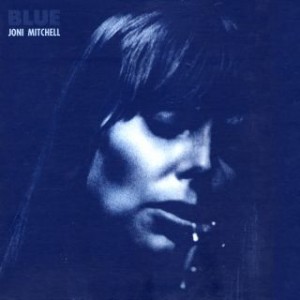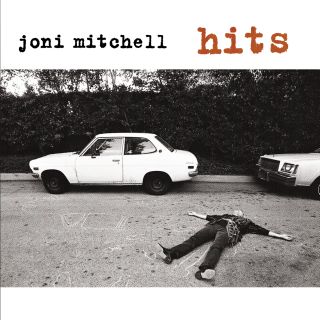
"Blue" (1971) Remains Joni Mitchell’s Most Popular Record To This Very Day. The Album Brought A Whole New Degree Of Openness Into The Making Of Music.
The album which started Joni Mitchell’s commercially-successful days, “Blue” was also the one album heralding a whole new kind of sensibility. Starting with “Blue”, artists were no longer afraid to expose their failings and vulnerabilities. Music took on a completely confessional nature, and an openness that could be potentially healing but also imminently dangerous for its participants was established.
This could hardly be termed coincidental, of course. The idealism of the late ’60s had not just been challenged – it had been turned on its head. Everything was to become starker as the decade advanced. And musicians began expressing both their inner turmoil and the state the whole industry was in through their art. The results would rank from the too-close-for-comfort “The Who By Numbers” to albums like Dylan’s “Blood On The Tracks”, true artifacts of despondency that would have been out of place in the previous decade – a decade in which it was assumed that music would do nothing but change the world.
As I said when reviewing the “Hits” package, the sparser the instrumentation then the more effective the songs on “Blue” are. “River”, “Little Green”, “This Flight Tonight”… these songs wouldn’t have worked like they did otherwise. The directness of the sound simply highlights the true profundity of the message – the desire to break from the desolation of the whole music business expressed in “River”, the remorse of having given up a daughter for adoption and never hearing from her again as Joni did when she was young conveyed in “Little Green”, the self-flaying doubts upon leaving a loved one behind (as in “This Flight Tonight”)… Joni also looks resentfully on her marriage on the song “The Last Time I Saw Richard”, whereas “California” echoes the unsettling feeling of being in the wrong place at the wrong time expressed by “River”.
And even the songs which could be deemed as upbeat are weighed down by a sensation that brings to mind the old saying, “Happiness is nothing but sadness wearing a mask”. “A Case Of You” is dog-eared by destitution, the lyrics describing a love that is too strong and over-arching for its own good. And “All I Want” is a forceful reminder of how proximate loving is to hatred. In both cases, it seems as if the singer were the kind of person who gives just too much away. People like that always assume that his/her significant other will do the same. And when that doesn’t happen (because it just doesn’t happen – taking emotions for granted is as devastating as it is commonplace), a true circle of recriminations and self-loathing is patterned. Continue reading


